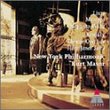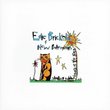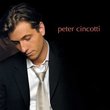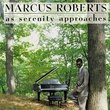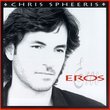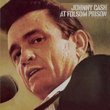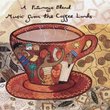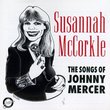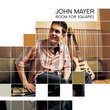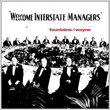| All Artists: Bill Evans Title: Alone Members Wishing: 3 Total Copies: 0 Label: Verve/ Polygram Records Release Date: 10/25/1990 Genres: Jazz, Pop Styles: Cool Jazz, Modern Postbebop, Bebop Number of Discs: 1 SwapaCD Credits: 1 UPC: 042283380127 |
Search - Bill Evans :: Alone
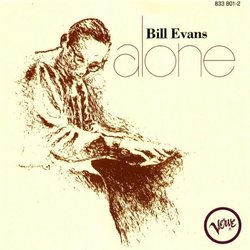 | Bill Evans Alone Genres: Jazz, Pop
|
Larger Image |
CD DetailsSimilar CDsSimilarly Requested CDs
|
CD ReviewsOne of a Kind Samuel Chell | Kenosha,, WI United States | 12/05/2005 (5 out of 5 stars) "In a late-career appearance on Marion McPartland's NPR radio show, "Piano Jazz," Bill made two striking comments about playing solo piano: first, it's exceedingly challenging and therefore more satisfying than performing in a trio; second, he has never felt himself equal to the task. Perhaps both comments help explain why "Alone" is such an exceptional piano recording and singular listening experience. Unlike some current jazz piano prima donnas who shall remain nameless, Bill at no point uses the occasion as a "license" for self-expression or the song as a bare structure awaiting ornamentation and transformation. There's never the least hint of self-indulgence, display, or preciousness. It's all about the aesthetic "object"--the song--and the ability of the interpreter to illuminate every nook and cranny of its structure, in the process making it his own and making it come alive for the listener, often as if for the first time. Bill frequently changes keys--not for effect but as a means of coming at the same pattern from a slightly different angle. The opening chorus of "Rainy Day," for example, is played in B (a surprising, even forboding, yet shimmering, radiant key) before it yields to the familiar, original key of G for two choruses of block chords that dazzle with their inventiveness while never deserting the composer's harmonic scheme. Finally, Bill coaxes the tune down to a more "comfortable" F before ending it in the tantalizing key of Db. The primary challenge Bill had in mind with his remark to Marian was the problem of rhythm and the role of the pianist's left hand. The solution for most pianists is some variation of stride or walking-bass piano. Evans is virtually the only pianist who can ignore such pedestrian left-hand duties and achieve equal rhythmic momentum and swing through the purposeful note choices of his right hand supported by the full-bodied texture of his left-hand chords. To say that Bill merely "implies" the time is misleading: the same technique in the hands of other pianists would be thin and static. It should also be observed that Bill doesn't linger on any of his tempos, despite the all-ballad program. Each performance is characterized by efficient and economical movement toward a destination--the culmination of the song's own internal logic. The churning movement and forward edge in Bill's solo playing is even more evident during the last two years of his life. Listen to the performance of "I Loves You Porgy" on The Paris Concert (Edition One) or to his demonstration on the NPR recording with McPartland or to the half-dozen solo piano introductions to "Nardis" on "The Last Waltz." Unfortunately, there's no complete documentation of Bill's solo playing from this period. "Alone" remains an indispensable recording for anyone who professes an interest in Bill Evans, solo piano playing, or American popular song." Possibly, the greatest jazz solo piano album ever recorded Don O. | Canada | 07/10/2000 (5 out of 5 stars) ""Alone" is the greatest jazz solo piano album that I have ever listened to, and I am forever grateful that Bill Evans recorded it. Solo piano playing presents a formidable challenge to even the most accomplished pianist. In most cases, as soon as the music begins, the listener's attention drifts away as fast as the first few notes fade. "Alone" is an exception to this malady. The opening strains of "Here's That Rainy Day" will catch your ears immediately, as if the song had been there all along, desperately wanting your attention. When Evans starts to improvise on this Jimmy van Heusen-Johnny Burke classic, the song takes flight. So do the other selections in the album. Johnny Mandel's "A Time For Love" swings without losing its lyrical beauty. Incidentally, Evans' piano improvisations on this song have been transcribed faithfully by Pascal Wetzel in the book, "The Artistry of Bill Evans," a must for amateur and professional jazz pianists. In "Never Let Me Go," he gives us a glimpse into the window of his soul in a stunning performance that runs over fourteen beautiful minutes. "Alone," as the title states, does not need a rhythm section contrary to what others mistakenly suggest. It is at the same time quiet and swinging. If you know your jazz, you will understand what the late Bill Evans was trying to convey." Flaccid? You must be joking. . . Don O. | 11/06/2001 (5 out of 5 stars) "I refrain from trying to express my response to Bill's music in words, because I can never find the right ones. Some people come close with poetic, elegiac, impressionistic, lyrical, softly swinging, but to call his playing flaccid shows no understanding at all for Bill's most extraordinary strength: his complete mastery of keyboard harmony. His voicings range from minimal to dense, but they're always spot-on for their musical context. I would call his playing on this recording not flaccid at all, but harmonically quite muscular, even where the result seems quiet or reticent. In any case, every track is beautifully conceived and sounds quite beautiful to my ear. This is one of my favorites. I've learned a lot from listening to it, and continue to learn from it. . . it gets richer with each listening. . ."
|

 Track Listings (7) - Disc #1
Track Listings (7) - Disc #1